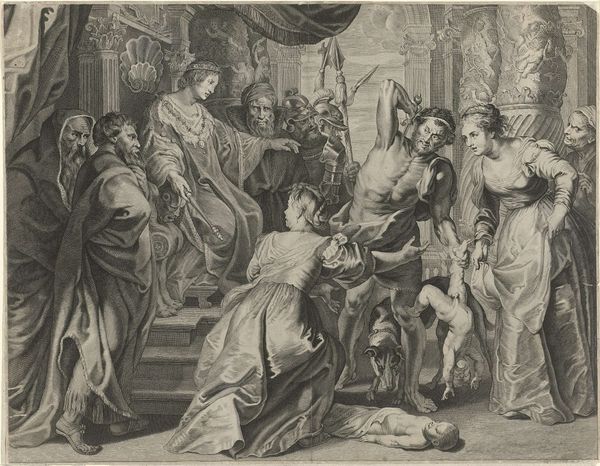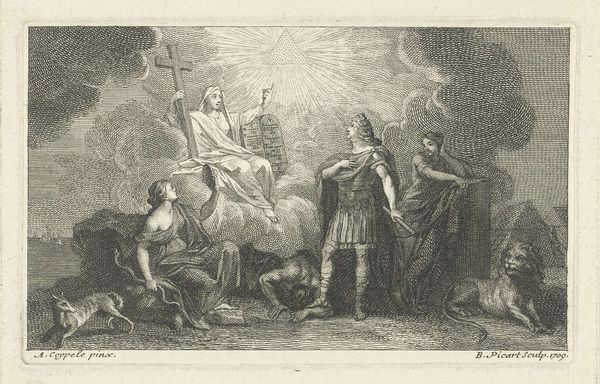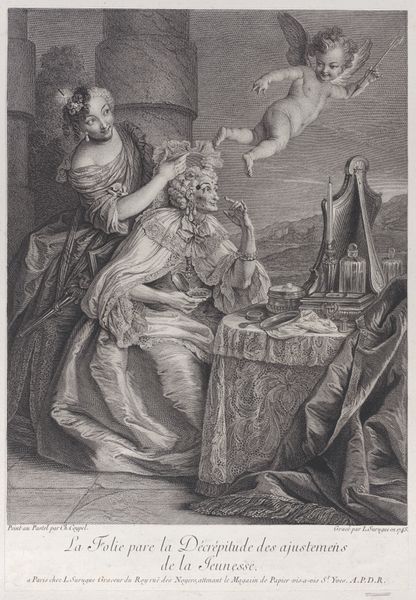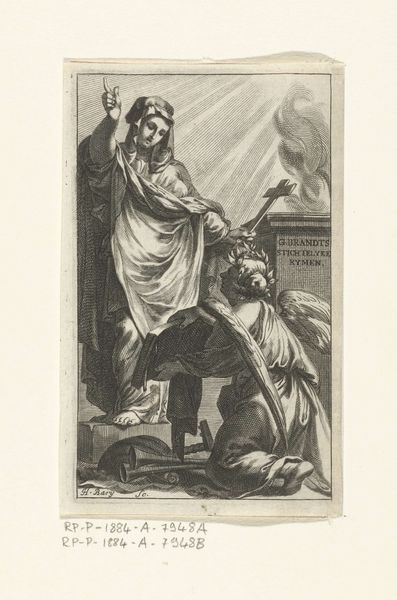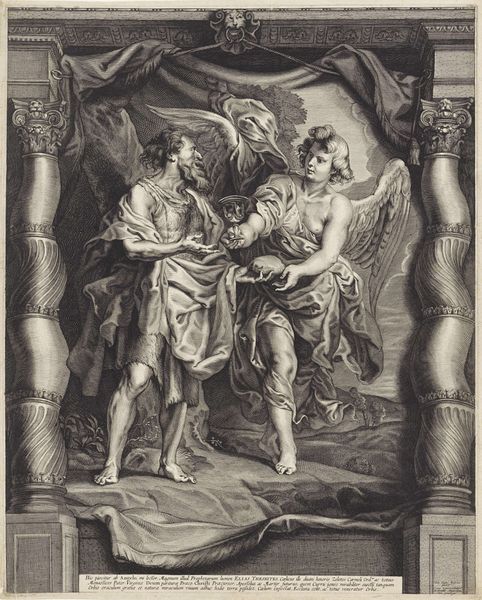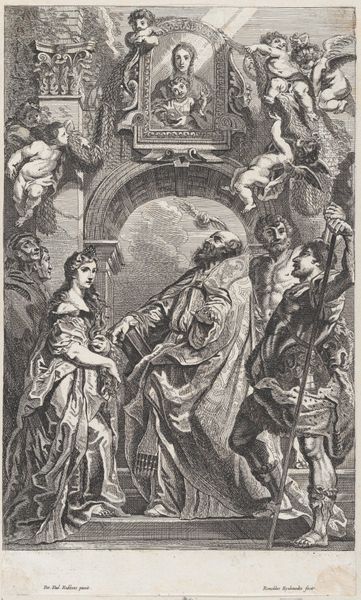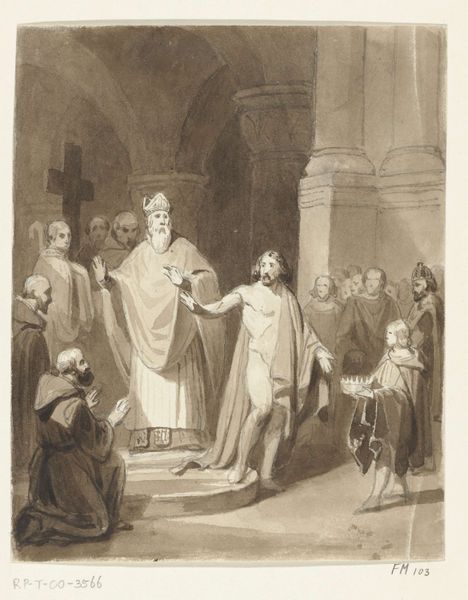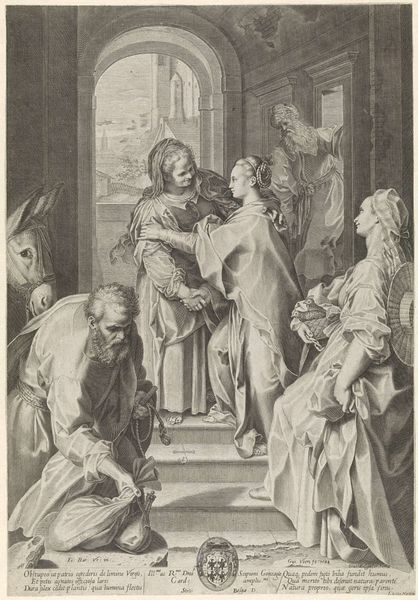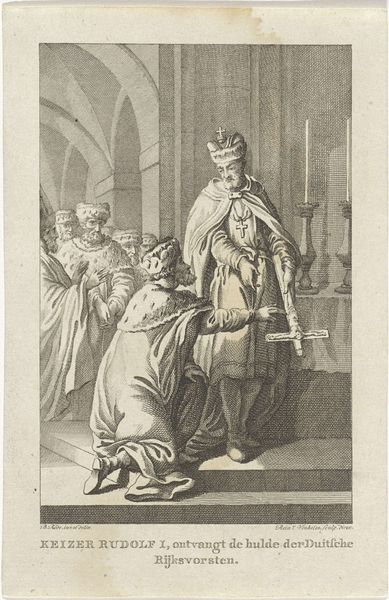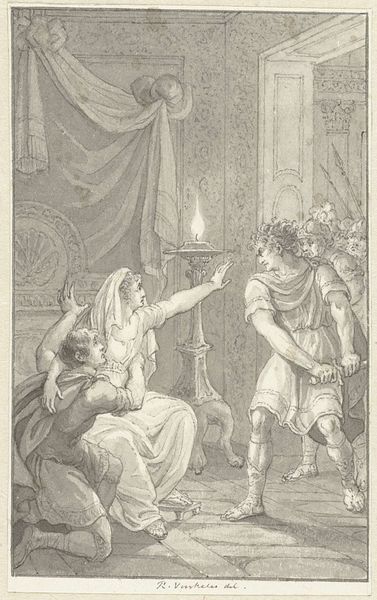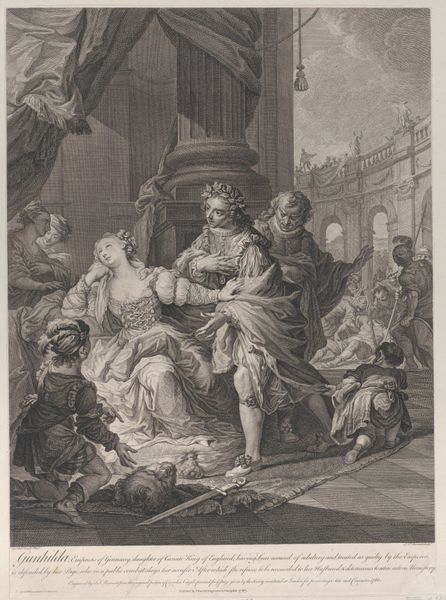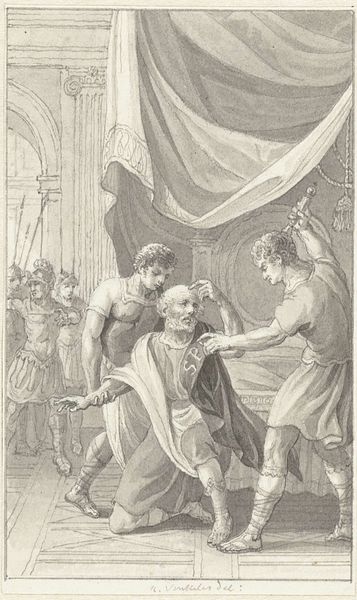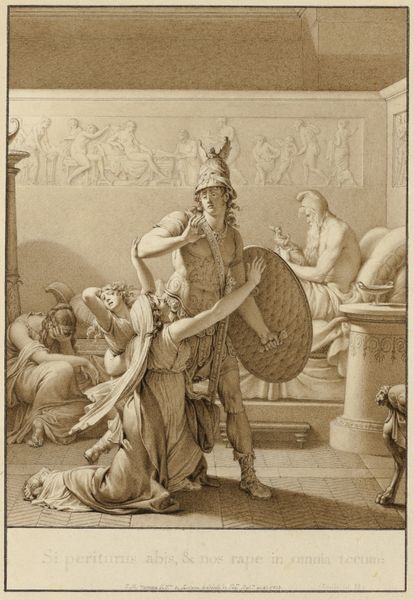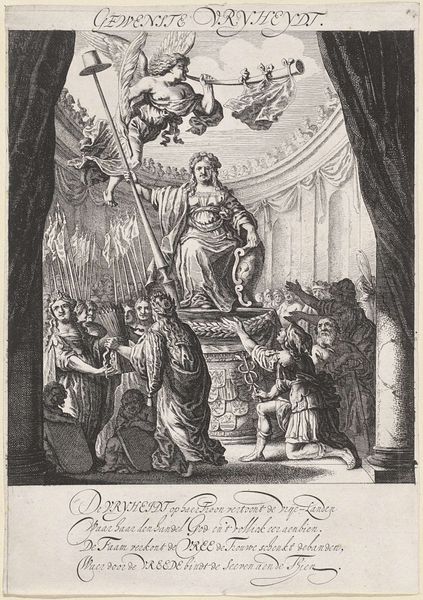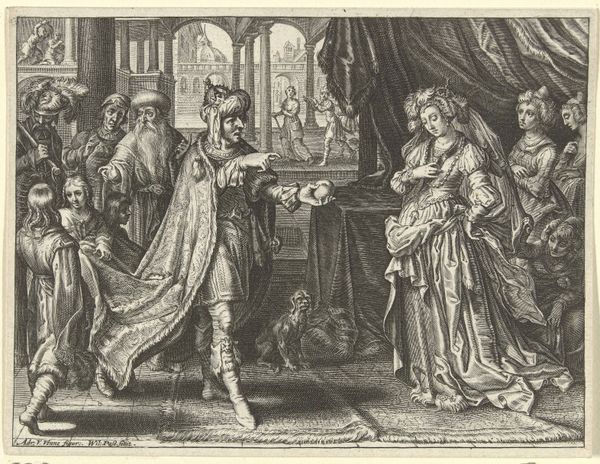
painting, gouache, oil-paint
#
gouache
#
neoclacissism
#
allegory
#
painting
#
gouache
#
oil-paint
#
figuration
#
painting painterly
#
watercolour illustration
#
history-painting
Dimensions: 61.5 cm (height) x 37 cm (width) (Netto)
Curator: The work we're looking at is entitled "Christian III Succouring Denmark," a gouache created around 1780 by Nicolai Abildgaard. Editor: I'm immediately struck by the ghostly, almost dreamlike quality of it. It’s theatrical but strangely muted. The colours seem to emanate from within, and there's an intense, albeit constrained, drama playing out. Curator: It is theatrical, in a way! Abildgaard was a master of neoclassical history painting, a grand genre preoccupied with moralizing stories and allegorical figures. This is precisely that. Editor: Absolutely. It's about more than just depicting a historical event; it's a statement, right? An idealized, symbolic gesture of Christian III offering… what, salvation, support to a vulnerable Denmark embodied in this weeping figure. Who is she, by the way? Curator: Yes, exactly. Abildgaard casts Denmark as this distressed woman who has, perhaps fallen into disgrace. A disheveled maiden symbolizing vulnerability being raised from the ground, or rather rubble, by King Christian who brings divine blessing to the nation from the gods, shown behind them in the clouds. Editor: Those figures floating in the background above the clouds, presiding like Roman Gods overseeing mortals… they represent what exactly? Some form of divine intervention, or maybe idealized concepts of governance? And what’s that broken masonry near her? Curator: Absolutely! It's an allegory, so Justice, perhaps wisdom and power are on display in the sky while Denmark sits amongst what seem to be architectural ruins. It seems he meant to symbolize her recent troubles with neglect, ruin and possibly greed. Editor: So it's about more than just the historical Christian III; it’s a visual argument for just, moral leadership—a timeless plea to the monarchy, or government at large, to offer succour to the nation. Even today, with global strife affecting Denmark’s relations with Europe and its other neighboring countries, it’s an inspiring and timeless appeal for political hope. It speaks to our sense of security as Danes today. Curator: Precisely, and maybe that's the source of that ethereal quality I felt, its relevance transcends eras, a universal tale told in neoclassical guise, or in a romantic guise. Editor: Indeed, it transcends temporal bounds. I initially saw despondency and ruin, but seeing Abildgaard's vision allows me to witness true inspiration to remain.
Comments
No comments
Be the first to comment and join the conversation on the ultimate creative platform.
